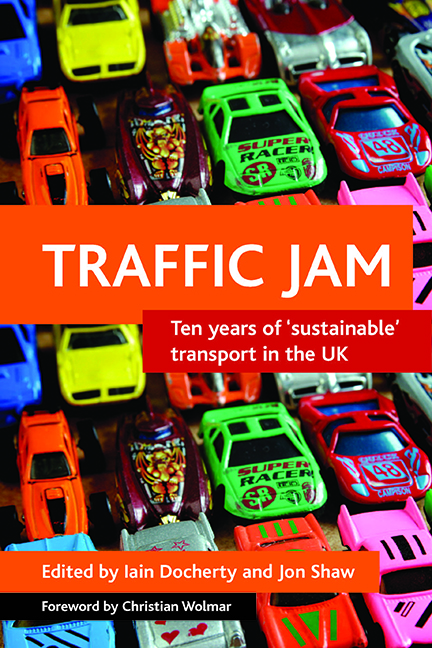Book contents
- Frontmatter
- Dedication
- Contents
- List of tables, figures and boxes
- Foreword
- Preface and acknowledgements
- List of acronyms
- Notes on contributors
- Part One Policy and politics
- Part Two Progress in policy implementation
- Part Three Ten years since A new deal for transport – signposts to the UK’s transport future?
- Index
eight - Economic versus environmental sustainability for ports and shipping: charting a new course?
Published online by Cambridge University Press: 21 January 2022
- Frontmatter
- Dedication
- Contents
- List of tables, figures and boxes
- Foreword
- Preface and acknowledgements
- List of acronyms
- Notes on contributors
- Part One Policy and politics
- Part Two Progress in policy implementation
- Part Three Ten years since A new deal for transport – signposts to the UK’s transport future?
- Index
Summary
The UK port system has long been positioned on the crucial interface between the interests of the economy and those of the environment. On the one hand, it is imperative that the national economy is served by ports with both the capacity and the efficiency to ensure the uninterrupted progress of trade. Continuing globalisation strongly underlines this, with the Asian trades currently representing 46% of UK containerised traffic and external energy dependence an increasing feature. On the other hand, however, ports and their associated shipping have been responsible for extensive long-term environmental damage around our coasts. Increasing vessel sizes, driven by the constant search for economies of scale in transport, have generated the demand for new port areas to be carved out of the environmentally sensitive coastal zone. Port-based industries – oil refining, petrochemicals, steelworks – have in their heyday commonly consumed several square kilometres of coast in a single bite, often from the shrinking stocks of wetland (Pinder and Witherick, 1990; Pullen, 2004). Air and water pollution have been driven by both port industries and the upward spiral in shipping movements. And hinterlands have borne the environmental consequences of the swing towards road transport for many imports and exports (Harcombe and Pinder, 1996).
Compared with other facets of the sector, A new deal for transport (DETR, 1998) focused only briefly on ports and shipping. Nonetheless, in setting out port policy objectives the document clearly recognised this tension between national economic and environmental interests (1998, p 71):
The aims of our policy will be to:
• promote UK and regional competitiveness by encouraging reliable, efficient distribution to markets;
• enhance environmental and operational performance by encouraging the provision of access to markets by different forms of transport;
• make the best use of existing infrastructure in preference to expansion, wherever practicable;
• promote best environmental standards in port design and operation, including where new development is justified.
Equally importantly, in keeping with the neoliberal spirit of the times, this policy was to be pursued at arm's length. The concept of an overarching national ports strategy was rejected; responsibility for achieving port system development was placed firmly with the numerous private companies, local authorities and trusts that actually owned the ports; and government control was to be limited to that available through the planning system.
- Type
- Chapter
- Information
- Traffic JamTen Years of 'Sustainable' Transport in the UK, pp. 161 - 180Publisher: Bristol University PressPrint publication year: 2008



